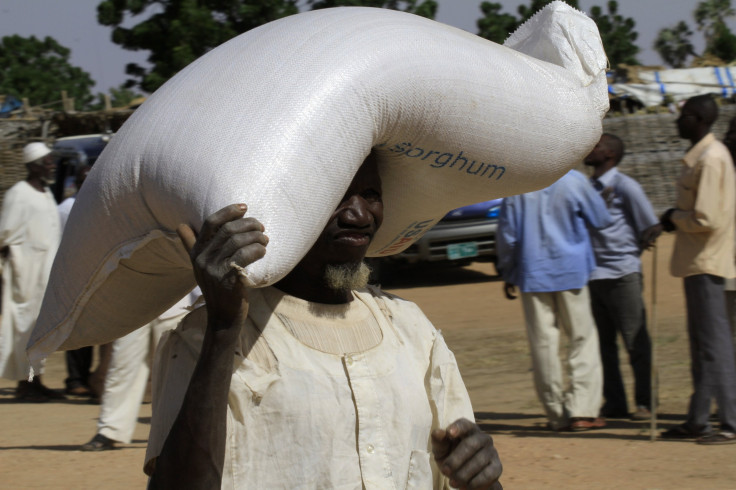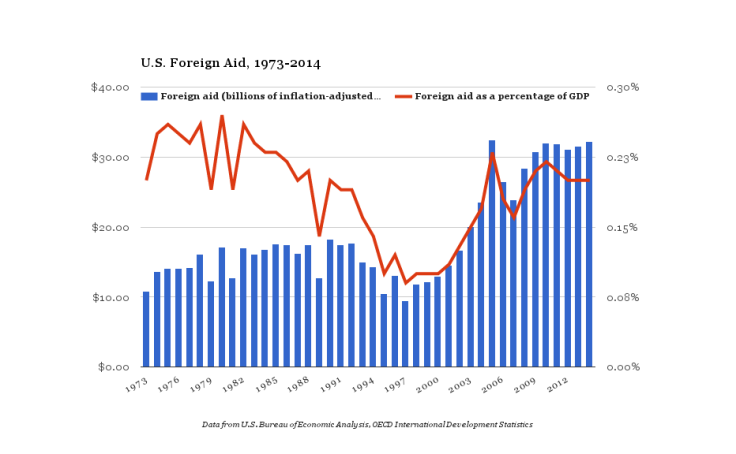Nobel Prize Winner Angus Deaton's Controversial Stance On Foreign Aid

Nobel Prize-winning economist Angus Deaton holds at least one position that might strike some as incongruous for a scholar deeply concerned with inequality: He argues that rich countries should reconsider the foreign aid they give to poorer nations.
“I don’t think it works. It does more harm than good,” the Princeton economist said in a 2014 lecture. “Money is a necessary condition for improvement -- the trouble is, it’s not a sufficient condition for improvement.”
Deaton was awarded the Nobel Memorial Prize in Economic Sciences Monday for diving into the gritty details of the consumption habits of the poor -- work that helped link grand macroeconomic theories to granular microeconomic realities. But he laid out a controversial argument against foreign aid in his 2013 book, “The Great Escape: Health, Wealth and the Origins of Inequality.”
The book begins with an extended meditation on the ways quality of life has drastically improved across the world in the past two centuries -- far fewer children die young, for example. The tome concludes by addressing the quandary of persistent global inequality: Why, after trillions of dollars in foreign aid, have the scales not evened between poor and rich nations?
Deaton argues that the problem lies in how assistance is administered -- typically, through transfers directly to governments. In some cases, such as HIV reduction, foreign aid has been essential, Deaton argues. But governments that receive multibillion-dollar gifts may lack the capacity to implement sound policies. Worse, they may use the aid to deepen cronyism and corruption -- as U.S. auditors have argued is the case with the billions of dollars in assistance flowing into Afghanistan.
That opens up a catch-22, Deaton writes. People who could use the aid most tend to live in countries that are the worst at supplying it.
“When the ‘conditions for development’ are present, aid is not required,” Deaton writes. “When local conditions are hostile to development, aid is not useful, and it will do harm if it perpetuates those condition.”
In other words, nations whose governments are effective in growing economic prosperity don’t need aid, while nations run by incompetent governments generally do.

Deaton was hardly the first to make that point. In 2007, former World Bank economist William Easterly, a friend of Deaton’s, wrote “The White Man’s Burden,” an excoriating reflection on the ineffectiveness of Western foreign aid. Two years later, the Zambian economist and former Goldman Sachs strategist Dambisa Moyo released the bestseller “Dead Aid,” which argued that cronyism and bureaucratic red tape in Africa had rendered foreign assistance useless.
But Deaton hardly believes the fortunate sliver of humanity born into abundance should turn its back on the rest of the world. Those born in the “right” countries, he writes, “have a moral obligation to help reduce poverty and ill health in the world.”
One way to exercise that "moral obligation,” Deaton has suggested, is to airlift cash directly to those who need it. “It would take an astonishingly small sum of money -- about 15 U.S. cents a day from each adult in the rich world -- to bring everyone up to at least the destitution line of a dollar a day,” Deaton wrote in a 2013 op-ed.
That would be more effective, he argued, than massive aid packages handled by lumbering nongovernmental organizations and bureaucratic governments.
In fact, the few programs that do exist along these lines owe their existence, in part, to research Deaton conducted in the late 1990s. One of those organizations is GiveDirectly, an American nonprofit that has raised more than $50 million for recipients in Kenya and Uganda who live on less than a dollar a day.
“When we launched GiveDirectly publicly in 2011, people considered it new and experimental,” says the nonprofit’s Chairman Michael Faye. “Deaton was writing about cash transfers 15 years before that.”
Faye cites two studies from the late '90s, co-authored by Deaton’s wife Anna Case, which found “quite favorable” effects of large cash transfers to elderly individuals in South Africa. “The South African experience calls for a serious look at similar direct cash transfers more generally,” Case and Deaton wrote.
Faye traces the recent swell of interest in direct cash transfers to the research Case, Deaton and others pioneered a decade before. “It really was seminal,” he says.
But such aid is insufficient, Deaton argues, unless governments in poor nations can reliably build roads, staff schools, enforce environmental regulations and maintain working health systems.
Until that point, Deaton’s controversial argument against foreign assistance as currently practiced will likely loom larger -- especially with a Nobel medal pinned to its author. “There is no argument on for continuing it on the grounds that ‘we must do something,'” Deaton writes. “The something that we should do is stop.”
© Copyright IBTimes 2024. All rights reserved.






















